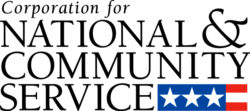National Public Radio (NPR) news has had two stories recently regarding how volunteers serving on the boards of public institutions across the USA are being harassed by angry, volatile community members angry about COVID-19 prevention protocols, and the stress and fears regarding their safety is leading many to quit.
One story profiles a school board member in Indiana whose adult son drove two hours from his home to be with her during a school board meeting to ensure her safety against aggressive audience members. He took his mother in his car so protesters wouldn’t know her car and be able to identify it later around town. When the meeting was over, he circled her block for 30 minutes to make sure no one was following them to her home.
Charlie Wilson is the past president of the National School Boards Association and a school board member since 2007. But he won’t be running for another term: he reports getting daily hate emails and sometimes phone calls and, occasionally people knocking on his door, “threatening to do all kinds of things.”
In another NPR story, a Nevada school board member said he had thoughts of suicide before stepping down amid threats and harassment. In Virginia, a board member resigned over what she saw as politics driving decisions on masks. The vitriol at board meetings in Wisconsin had one member fearing he would find his tires slashed.
Police have been called to intervene in places including Vail, Colorado, where parents protesting a mask mandate pushed their way into a board room in April, and in Mesa County, Colorado, where Doug Levinson was among school board members escorted to their cars by officers who had been unable to de-escalate a raucous August 17 meeting. “Why am I doing this?” Levinson asked himself.
In his letter of resignation from Wisconsin’s Oconomowoc Area School Board, Rick Grothaus said its work had become “toxic and impossible to do.” He resigned August 15 along with two other members, including Dan Raasch, who wondered if his car and windshield would be intact after meetings.
School board members are usually unpaid volunteers, often parents, grandparents, or former educators who step forward to donate their time to shape school policy, choose a superintendent and review the budget. But a growing number are resigning or questioning their willingness to serve as meetings have devolved into shouting contests between deeply political constituencies over how racial issues are taught, masks in schools, and COVID-19 vaccines and testing requirements.
The National School Boards Association’s interim executive director, Chip Slaven, said there isn’t evidence of widespread departures, but he and several board members reached by The Associated Press said the charged political climate that has seeped from the national stage into their meetings has made a difficult volunteer role even more challenging, if not impossible.
Volunteer engagement on civic bodies, like school boards, planning commissions, public safety or police advisory commissions and other government bodies is supposed to give decision-making and responsibilities to people who don’t have a financial stake in the outcome of decisions, who don’t fear that losing that role will affect their income – because it isn’t their job. And having public meetings means community members can have an outlet for their opinions, and get those opinions in the public record. Even before COVID-19, it was often largely thankless work. People have signed up for these volunteering roles, or even run to be elected for such, for a variety of reasons: many because they feel an obligation to serve their community, that it’s a part of their obligation to the society in which they are a part. Some do it because they aspire to elected office in their city, county, state – even nationally – and they need the experience. Some do it because they want to have a greater profile in their community, maybe because they think it will lead to more customers for their business or that they will get noticed and hired by a place where they want to work. Highly partisan politics and ideology are not top of mind for most of them – but even before the global pandemic, there would be movements, largely by people on the extreme right, to get volunteers involved who would push an agenda: stopping evolutionary biology from being taught in schools, requiring prayer at public events, pushing for ordinances that would close a health clinic for women that provides abortion services or that would prevent affordable housing from being built, etc. There are now more candidates than ever who are single-issue focused or openly partisan running for the coming school board elections across the country.
Managers of volunteers and consultants regarding volunteerism and volunteer engagement: what is your advice for supporting volunteers in these roles? We can’t stop the hostility at meetings, but how can we support volunteers we want in these roles, so they don’t quit, so they won’t feel endangered or so stressed out they quit? What support should they expect in these roles? Comment below:


